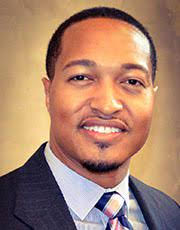Jason D. Thompson, PhD, Contributing Writer
The debates within our church’s legislative body have brought to light the age-old power struggle in every human institution, even those dedicated to spiritual pursuits. While we might wish to believe that our decisions are guided solely by divine inspiration, the reality is that we, as fallible humans, are also influenced by the dynamics of power. A church legislative body like the AME General Conference is no exception. For instance, the highly contested issue of many delegates demanding answers on how the denomination intends to pay back the nearly $90 million in mismanaged and lost retirement funds isn’t mere political posturing but an example of the ways power influences not only what happens in the General Conference but how it happens. Sociological thinkers like Max Weber, Karl Marx, and Talcott Parsons offer some insights into how power—both personal and positional—is wielded.
Power as control and conflict It’s easy to see Max Weber’s idea of ‘power at play’ when a vocal minority attempts to control the outcome of a vote or when a charismatic leader sways the opinions of the undecided. Understanding this perspective emphasizes the importance of checks and balances to ensure no single individual or group wields unchecked power.
Power as structure and hierarchy. But what happens when we see power manifested as established structures and church hierarchies? Karl Marx’s view of power shifts the focus from individuals to social classes and systems. When applied to the General Conference 2024, this could refer to the inherent power that we tend to place on some “important” voices, which can easily overshadow perspectives that are newer or less connected.
Power as coordinated action. Yet, during the power struggles already amplified on the first business session day of this gathering of delegates from more than 20 episcopal districts lies a bit of hope that we might miss it if we’re not careful. Talcott Parsons’ vision of power as a force for coordinated action offers the potential for a reimagined way of conducting legislative work. A not-so-quiet revolution is gaining momentum, driven by a shared desire for greater transparency and accountability in the areas that Mark Moore identified: 1) Systems (“We don’t rise to the level of our vision; we fall to the level of our systems.” 2) Staffing (“If you want to go fast, go alone. But if you want to go far…we go with a team.” 3) Strategies (“No longer can we major merely in passion alone yet minor in strategy. We have witnessed the positive potential of power when individuals work together effectively to implement initiatives that further our denominational mission.
It will be interesting to see these different facets of power at work throughout the remaining sessions of this 2024 General Conference. Our church’s legislative body is not simply a political arena; it is a sacred space where we are called to discern God’s will together. The extent to which we approach this responsibility with humility, transparency, and a genuine desire to serve the greater good of our church community is to be seen. Time will tell whether we can truly say that our decisions are guided by the Spirit rather than by the all-too-human pursuit of power.
Jason D. Thompson is pastor of Sacramento’s St. Andrews AME Church, the oldest historically Black congregation on the West Coast. He is a delegate to the 52nd Quadrennial Session of the General Conference.






Reverend Thompson,
A seminary classmate told me that that too many pastors and religious leaders will experience burnout. Because they often disregard or down right ignore the power of the Holy Spirit. Put differently, they fail to discern which spirits are they being driven by.
The quest for power is fallible, unhealthy, and dangerous. The Hebrew Scriptures is filled with persons who sought power by any means necessary. Authentic power is from God. Regrettably, some people are like Nicodemus. They just don’t get it.
I thank God that you get it.
Press on…
Reverend Philis Griffin
Very well said, that saying goes for our local Churches also. Transparency and truth is what Christ would do.